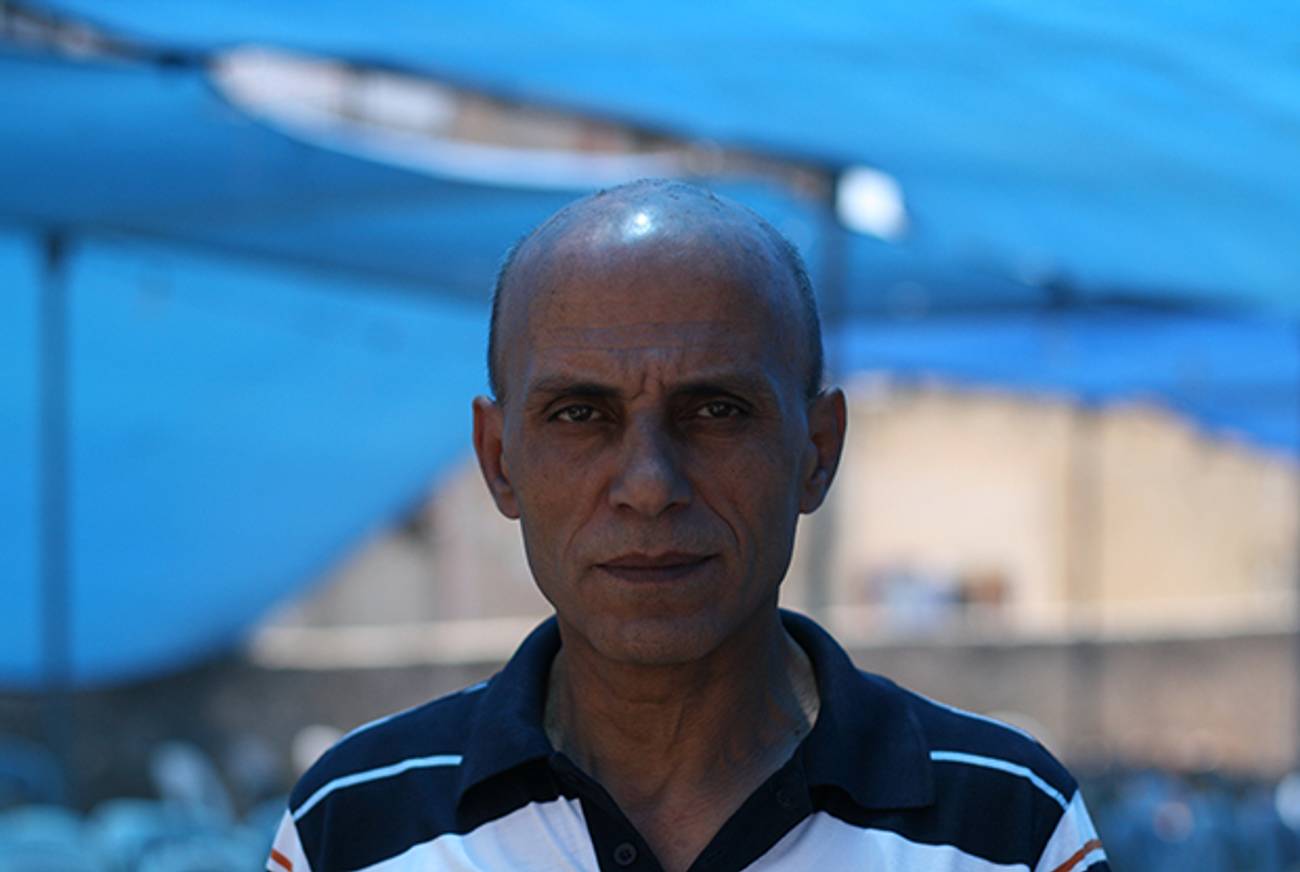Trauma Lingers for East Jerusalem Family
Uncle of Muhammad Abu Khdeir still reeling from identifying teen’s body




Last month, before Israeli air strikes were pummeling Gaza and before Hamas lobbed rockets across Israel, Israelis and Palestinians were reeling over the brutal murders of four teenagers. First, three Israeli teens were abducted and fatally shot near the Gush Etzion settlements in the West Bank. Then, one Palestinian teen was forced into a car and burned alive in the Jerusalem forest.
The murders triggered an outpouring of grief and fury across the country, ultimately escalating the long-simmering tensions between Israelis and Palestinians into a full-scale military offensive. I went to the East Jerusalem neighborhood of Shuafat last week to see how the family of Muhammad Abu Khdeir, 16, was dealing with their tragedy, which was at once deeply personal and collective.
The Abu Khdeir family was grieving in a mourning tent steps from the stairs where Muhammad sat just before he was abducted on July 2. Friends were supposed to meet him there and walk over to the neighboring mosque for prayer. Instead, a car pulled up, two men got out, and forced the boy in. Later that morning, Muhammad’s body was discovered in the Jerusalem forest.
When I walked into the tent, I met Muhammad’s uncle, Walid Abu Khdeir, 51. He was lining up dozens of white plastic chairs under a blue tarp. Photos of the slain teen were everywhere; on a poster inside the tent, on flags fluttering overhead, and on the side of the mosque where he would have said the early morning Ramadan prayer had he not been kidnapped.
Walid says he convinced his brother, Muhammad’s father, not to go to the morgue; instead, Walid identified the charred body by himself, and he told me he’s been carrying that gruesome image in his mind ever since.
It was a hot July afternoon in Jerusalem. We spoke while we walked the street around the mourning tent, as the local mosque sounded the call to prayer. Knots of riot police supervised repairs to the Jerusalem light rail station, which local Palestinians destroyed after the murder of the young Abu Khdeir. It was a harrowing interview, conducted in Hebrew, but I believe it shows one small picture of the despair of the victims of this current round of fighting.
What happened is that a car drove by, stood by this traffic light, and they saw Muhammad sitting alone. So I think they saw Muhammed alone, and they said, ‘Yalla, this is the person we want.’ They backed up the car in reverse, and stood there. Two guys came out and spoke to him nicely, we saw that in the security cameras of the second store over there. They spoke nicely to him, I think they asked for directions or something, this is what we saw in the camera.
And after this speaking, a minute or two later, they took him with force and put him in the car. He screamed, a lot of yelling, and three people saw him on the way. They ran after the car until the traffic light of Ramot, over there. And then then the driver who abducted him, drove through all the red lights, and they couldn’t identify the car and the license plate numbers. And…then we heard, they took him to the Jerusalem forest and they burned him. They burned him when he was alive.
Walid said he was the person sent to identify the body. Here’s what he remembers.
I saw the body, alone, to see if it’s our boy or not. I looked … this picture, I can’t say what picture I saw. Every time I talk about it, the image comes to mind and I don’t feel good. No…I’m sorry. [Walid cries]
That’s terrible.
Our boy!
Why did they send you—because you’re not the father?
No, his father said…I convinced him not to see him. So he said ‘you need to see him alone. Don’t let anyone else see and don’t take any pictures. I don’t want it. I want to see my son, a good picture, to be in my mind for all time.’ So this went to my memory.
I asked if Abu Khdeir has children of his own. He’s the father of 10-year-old twins. One is named Muhammad, the same as his cousin.
My son says to me, ‘Maybe they took him, and burned him, because his name is Muhammad. And I am Muhammad, too. Maybe they will take me.’
What do you tell the boy?
I tell him no, honey, There are a lot of people who don’t think about something like that. There are a lot of good people among the Jews too.
Abu Khdeir is answering questions not only from his children, but from his wife, who has taken the abduction hard.
My wife, I’ll tell you in the last week, she really drove me crazy. Drove me crazy, really! ‘Where are the kids where are the kids, keep them at your side!’ We give them every day five or 10 shekels to go buy sweets. So when they go to the store over there, she worries. Ten meters she can’t handle. She wants them in sight all the time. If they’re not sitting with her or sitting with me, she’ll make a scene.
Abu Khdeir said he feels a sense of helplessness. Police have pledged to bring the perpetrators to justice; last week, six suspects were arrested. Three confessed, and the other three were released.
The tent has come down since last week. Abu Khdeir said he sent a letter to Jerusalem mayor Nir Barkat, urging him to fix not only the Jerusalem light rail, but also the poisoned feeling that has hung over Shuafat ever since the murder.
Daniella Cheslow is an American journalist covering the Middle East.